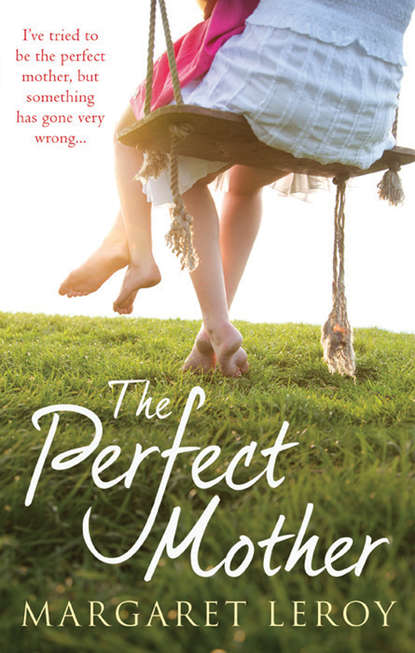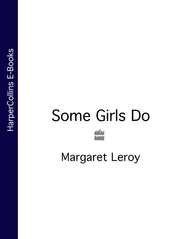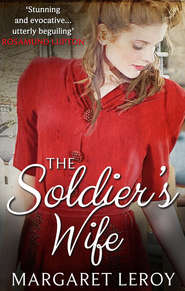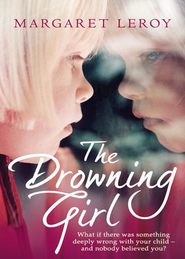По всем вопросам обращайтесь на: info@litportal.ru
(©) 2003-2025.
✖
The Perfect Mother
Автор
Год написания книги
2018
Настройки чтения
Размер шрифта
Высота строк
Поля
Her tears always bring a lump to my throat, and then a kind of worry that she has such power over me, a feeling that this shouldn’t be, that it’s weak, ineffectual. I know I’m overprotective, that I find it hard to tolerate my child being unhappy. That I’m not like other women, with their anoraks and certainty. I know this is a flaw in me.
We park down the road from school. I give her a tissue and she wipes her eyes.
‘Is my nose red?’ she says.
‘You look great,’ I tell her.
‘You didn’t answer my question, Mum,’ she says.
In the road outside school, there’s the usual stand-off, two lines of traffic facing one another. There are parents who persist in dropping their children here, optimism triumphing over experience; they hoot futilely but nobody can move. Children mill round in padded winter coats, some of them newly purchased and a little too large; they’re moving fast and anarchically, as though the wildness of the weather is inside them. People have changed over the holiday. One child looks cute in new glasses, another has visibly grown. Natalie’s mother, who so liked my house, is pulling at a frenetic puppy. Someone else, hugely pregnant in December, has her immaculate baby in a sling. The baby still has that translucent unfinished look, so you feel if you held his hand to the light, perhaps you would see straight through. The sight pulls at women’s eyes and the same expression crosses all their faces, eyes widening, as though this is still a surprise. Crocuses are coming up in the lawn in front of the school; they have the tender colours of paint mixed with too much water, a fragile buttery yellow, and purple, pale as the veins inside a woman’s wrist. It’s only been a fortnight, and there’s so much that is new.
We’re holding hands as we walk towards the gate; her hand is tightening in mine. I look down at her. Her face is set, taut.
‘D’you want me to wait with you till the bell goes?’
I offer this as a choice, though really I have no choice: her hand is wrapped around mine like a bandage. She nods but doesn’t speak.
We stand there together by the gate as the children surge forward. The wind blows my hair in my mouth, but I’m holding Daisy with one hand and her lunchbox with the other, and I can’t push it back. My black denim coat, though stylish, is a little too cold for the day. We hear broken-off bits of conversation, blown round us like fallen leaves. Someone is making a complicated arrangement for tonight, involving tea and maths and ballet classes; someone else had fifteen to dinner for Christmas, and honestly it was like a military operation…
Over the heads of the children, I see the back of a man’s neck, his leather-jacketed shoulders, his rumpled head. It’s Fergal with his little boy. He must have walked straight past me. This makes me uncomfortable. I don’t know if he’s forgotten me, or simply hasn’t seen me. I start to feel unreal with no one to talk to.
And then Nicky is there, her children tugging at her, the ends of her stripy scarf streaming out behind her. Her smile warms me through.
‘Wow!’ she says. ‘So this is the coat. Fabulous! I am green.’
‘Thanks,’ I say.
As always she’s rushing, everything on the most feverish of schedules, dropping off the boys before jumping into her car and heading off to her other life at Praxis, the advertising agency. But she sees that Daisy is troubled and she ruffles her hair with her hand.
‘Not feeling too good, lambchop?’ she says. ‘Trust me, you’re not the only one. I hate the first day of term. Neil had to positively kick me out of bed.’
She pats Daisy’s shoulder; Daisy doesn’t turn to her. The boys pull at her, and she’s off, her scarf fringes flapping.
The bell rings.
‘There we go,’ I say, bending to kiss the top of Daisy’s head.
She wraps herself around me.
‘Come on, sweetheart.’
I try to prise her fingers away from my hand, but they stick like pieces of Elastoplast.
‘Mum, I can’t do this,’ she says. ‘Don’t make me.’
I cannot disentangle her from me. I know this is ridiculous, but I can’t.
People are looking at us with unconcealed curiosity. There are all these warnings in my head, slogans from the war between parents and children. They do try it on…Give them an inch…And I hear Gina at her most dogmatic, pronouncing on the pitfalls of modern parenting: You don’t want to go the brown rice and sandals route, you’ve got to show them who’s boss…
‘Sweetheart, you’ll be fine when you get into class.’
She is crying openly now, shivering with it. She doesn’t even seem to hear me.
‘Come on, let’s go in together.’
I try to move towards the gate, but the whole weight of her body is pressed against me.
‘I can’t, Mum,’ she says again.
Fergal passes, coming out. He looks at me and nods but doesn’t smile, recognising my difficulty. Embarrassment washes hotly across my skin.
Something gives way inside me.
‘OK. We’ll go home,’ I tell her.
I bend and hug her, burying my face in the mango smell of her hair. Immediately she stops crying, though she’s shivering still. I have a sudden doubt: if only I’d pushed a little harder, I could have got her into class. I feel a pang for the exhibition, for the cat with the high-heeled shoe and the tunnels made of hair. Now I will never see them. But it’s done, we can’t go back. The front of my new black denim coat is damp where she’s been crying against me.
CHAPTER 4
I wake in the night and immediately all the sleepiness falls from me. I hear the night sounds, the clock at St Agatha’s emptily striking three, a siren, the staccato bark of a fox as he ranges along the backs of the houses. Beside me, Richard snores softly.
There in the cold darkness, my mind is clear, free of the day’s clutter, like a quiet pool. I’m alert, taut: I could run with the fox for miles. In that clarity, I start to add up all the food that Daisy has eaten for the last few days. Yesterday: a packet of crisps and about three spoonfuls of rice with gravy at tea-time. The day before yesterday: two water biscuits and half a packet of crisps. The day before that, I can’t quite remember: perhaps it was a piece of apple and half a chocolate crispy cake from a whole batch I made.
I’ve tried so hard to tempt her, cooked all her favourite things, offered them to her with that warm abundant feeling that fills you when you make good food for your children. Tomato soup from fresh tomatoes, ripe to the point of sweetness, with fennel and herbs for their green flavour, just a few so there wouldn’t be lots of leafy bits, and a swirl of cream on top. Fried chicken and noodles, her favourite, and a sponge cake with a lavish filling of strawberry conserve. Daisy helped me, sieving the icing sugar on top, making an intricate pattern of crescents she said she couldn’t get right, postponing the moment of eating; then, when I cut her a slice, she crumbled it up and left it. Chocolate crispy cakes, with a slab of organic Green and Black’s I found in the delicatessen. I tasted it when I’d melted it: it was velvet on my tongue, its scented richness making me sneeze. Normally Daisy would come and scrape the bowl, greedy and bright-eyed as some small animal, eagerly licking the dark congealing sweetness from the spoon, but she said she wouldn’t bother, she needed to finish her drawing. When the cakes were done, still warm, sticky, I put one on a plate for her. She took a bite and left it.
‘Sweetheart, don’t you like it? Perhaps I used the wrong chocolate.’
‘It’s fine, Mum,’ she said. ‘Really. I’ll have it later.’
When Sinead came in from school, the house still smelt seductively of chocolate. She came straight to the kitchen, drawn by the smell; her nose and fingers were red with cold. ‘Oh, yum,’ she said, putting her hand to the plate.
I told her she could only have one, they were for Daisy; that I was sorry, that seemed so mean, but we had to get Daisy well; that I’d make another batch for her.
Daisy looked up from her drawing.
‘I don’t mind, Sinead,’ she said. ‘You eat them. I’m not hungry.’
In that moment in the three o’clock dark, I see that all these things I’ve made are about as much use as nourishment as the offerings of milk or olives that peasants leave by the hearth—to avert catastrophe, perhaps, or please the household spirits. Fear lays cold fingers on my skin.
Guiltily, I whisper in Richard’s ear.
‘Richard, wake up.’
He mutters something I can’t make out, moves suddenly.
‘What is it?’ There’s a splinter of panic in his voice. I’ve startled him, or intruded into some alarming dream.
He opens his eyes.









